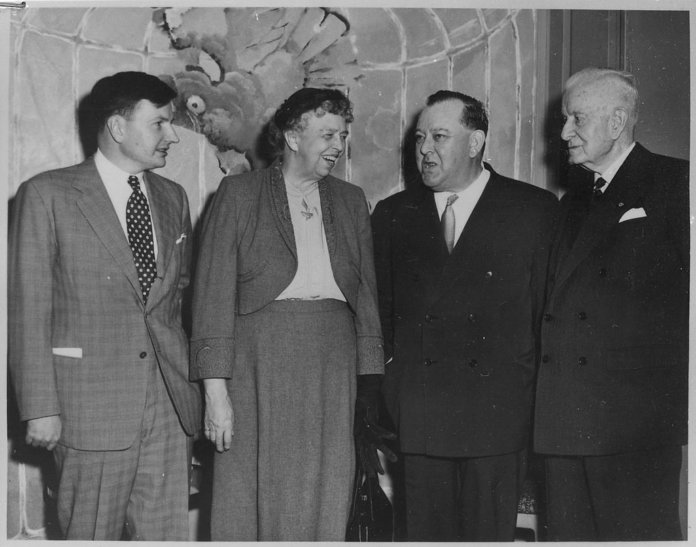
The Rockefeller name is synonymous with American old money and blue-blood wealth & power. For most of the 20th century, the family name would be invoked in jest whenever anybody came into a bit of financial windfall, as in, “Congratulations Mr. Rockefeller!”
This powerful American family lost their reigning patriarch when David Rockefeller passed away in his sleep March 20th at the age of 101. David was instrumental in building Chase Manhattan bank into one of the nation’s iconic financial institutions and was known for his philanthropic efforts. He was the last remaining grandson of John D. Rockefeller Sr., the man who co-founded the family fortune in the 19th century.
Standard Oil – Where it All Began
The brothers James D. and William Rockefeller led the team that incorporated Standard Oil in 1870 in Cleveland, Ohio. With the global industrial revolution in full swing, it wasn’t long before Standard Oil made the Rockefellers the wealthiest family in the world.
John D. Rockefeller saw the advantage in working in a market free of competition and methodically acquired or drove out any rivals within sight. This practice was wildly successful but also drew much scrutiny. The leadership team employed clever methods to try to disguise the monopoly but when the Sherman Antitrust Act passed through Congress in 1890, it led to the eventual breakup of Standard Oil.
Of course, it did nothing to slow down the growth and influence of the Rockefeller fortune. The smaller pieces that came from the Standard Oil breakup include Esso, Exxon, and Chevron, some of the biggest and most influential oil companies today.
Rockefellers and Politics
In 20th Century America, it was nearly impossible to separate wealth from politics. So it seemed a natural fit when Nelson Rockefeller, son of John D. Jr. and grandson of John D Sr. first sought political office. After serving in a handful of minor elected positions, Nelson made his first big move when he was elected Governor of New York in 1959. Ever since his grandfather first moved the Standard Oil head office to New York in the late 19th century, the Rockefellers were seen as the first family of New York. Nelson’s 14-year tenure as Governor of New York only cemented this national perception.
After Gerald Ford was elevated to President in the wake of Richard Nixon’s resignation, he called on the then Governor of New York to serve as his Vice-President. This put a Rockefeller “one heartbeat away” from becoming the leader of the free world. In later generations, other Rockefellers would follow in his path including Winthrop Rockefeller, who served as Governor of Arkansas in the late 1960’s, and Jay Rockefeller, who served as a Governor and Senator in West Virginia.
The Life of David Rockefeller
One Rockefeller who refused the call of public office was Nelson’s brother David. After the assassination of Robert Kennedy in 1968, then-Governor Nelson Rockefeller offered his brother the vacant New York Senate seat. David refused, preferring to concentrate on running Chase Manhattan Bank and focussing on his philanthropic and conservation efforts.
David Rockefeller’s fascination with nature began during his boyhood days spent at the family’s Westchester New York estate. As a little known and odd claim to fame, David put together the largest beetle collection in the world. He took a particular interest in preserving coastal lands, evidenced by the time he created a $4 million fund to preserve coastal land in Maine.
“He was a great sailor who loved Maine coast islands well beyond Acadia National Park,” said David MacDonald, President and CEO of the Friends of Acadia. “He had a generosity, commitment, and thoughtfulness about preserving this area of Maine that was profound. It’s a universal feeling that many of us have, which made him like you and me, though he was an international financier and banker. But here in Maine he was very accessible and committed, and easy to work with.”
The Rockefeller Legacy
There were a number of similarly powerful families who thrived in late 19th century and early 20th century America. The Duponts and Mellons made their mark in business just as the Rockefellers did. But those families didn’t permeate the very cultural landscape of America. One might argue that only the Kennedy family came as close to assuming the role of America’s royal family as did the Rockefellers.
Their imprint on New York city alone is quite impressive. The Museum of Modern Art (MOMA) exists entirely as a result of a donation from the Rockefeller family. And the iconic New York city Landmark commonly known as “30 Rock” is named for its address, 30 Rockefeller Plaza.
There can be no question that times have changed and the Rockefellers no longer hold the power and influence they did in the heart of the previous century. In that way, David’s passing represents something more than the loss of another wealthy businessman and philanthropist. It is also the passing of a connection to a different period in the history of American family business.










